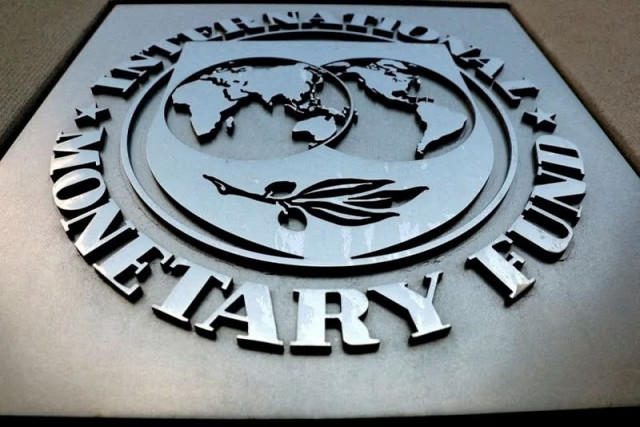Pakistan-IMF shy away from calling talks ‘programme negotiations’
Unlike in the past, finance ministry has also not defined the further engagement

Pakistan on Monday shied away from labelling the ongoing talks with the International Monetary Fund (IMF) as programme negotiations and instead said that the discussions were taking place “on further engagement with the fund”.
The finance ministry has also not defined the further engagement, unlike in the past when it had stated that the country was keen to secure the Extended Fund Facility (EFF).
In an official handout, the ministry said that “the IMF mission led by Nathan Porter called on the Finance Minister to kick start the discussions on further engagement with the Fund”.
The visit has been overshadowed by unrest in Azad Jammu and Kashmir (AJK) and the consequent approval of the Rs23 billion unbudgeted subsidy by the prime minister of Pakistan to cool down the situation.
The approval of the subsidy is seen as weakening political will and an indication that the coalition government may not withstand any wide-scale public pressure that may emanate due to conditions of the next bailout package.
The language of the finance ministry’s press statement was similar to a statement issued by the IMF Resident Representative Esther Perez who also said on Saturday that Porter was meeting with Pakistani authorities “to discuss the next phase of engagement”.
The sources said that during the opening meeting, Nathan Porter raised the issue of the shortfall in tax revenues, and imbalances between the federal and provincial taxes coupled with political challenges that the government was facing.
The sources said that at this stage it was not clear whether the IMF mission would end with a formal staff-level agreement for the next bailout package. They added that the duration, instrument and size of the next IMF programme were open to discussions. Pakistan is keen to have at least a three-year programme.
Finance Minister Muhammad Aurangzeb did not respond to the questions of whether the current IMF mission arrived for programme negotiations under the Extended Fund Facility.
He also did not comment on whether the IMF mission was looking for both options of a shorter-term programme in light of the political and economic situation or was aimed at only the longer-duration programme under the EFF.
In its staff-level report, the IMF on Friday said high political uncertainty and resurgence of social tensions due to a complex political scene and high cost of living could undermine the execution of economic stabilisation policies.
The finance ministry handout stated that Muhammad Aurangzeb apprised the IMF team of the improvement in the macroeconomic indicators over the course of the SBA and underscored the government’s commitment to continue with and expand upon the reform agenda.
The sources said that Nathan Porter raised the issue of the shortfall in tax collection. He also pointed out the disparity in the federal and provincial taxation.
Days before arriving in Pakistan, the IMF had sent a report that will determine the future course of negotiations in case the IMF gives a loan to Pakistan.
The sources said that the IMF has asked Pakistan to expand the terms of reference of the National Tax Council to include the harmonisation of tax rates and bases for agricultural Income tax and property tax. Currently, these two issues are off the limits of the federal government.
The IMF has also urged the Pakistan authorities to encourage provincial governments to step up on the collection of provincial taxes and enforcement of provincial tax laws.
The split in taxing rights between the federal government and provinces poses challenges for tax policy making and revenue administration, according to the IMF. It added that the split of responsibilities for the sales tax on services and goods, which are typically part of the same value chain, causes confusion and distortions.
The IMF has been asking to bring harmony in the federal and provincial taxes and also review the administration of these taxes.
The IMF said that placement of some federal tax revenues in the divisible pool under the National Finance Commission creates distortions, where the federal government favours the collection of taxes that are not put in the divisible pool and provinces face a reduced incentive for maximising their own revenues.
The finance ministry sources said that the Prime Minister’s decision to announce the Rs23 billion subsidies for AJK consumers has weakened the government’s case in the eyes of the IMF.
The premier approved the immediate provision of Rs23 billion to AJK after the region witnessed clashes and protests in the past few days. The money will be used for giving subsidies for wheat and electricity.
After winning the subsidy from the federal government, the AJK prime minister announced that the wheat would be provided at Rs2,000 per 40 kilogram as against the existing rate of Rs3,100 per 40kg.
Similarly, the regional government also announced to charge only Rs3 per unit for 100 units of monthly consumption, Rs5 per unit from 101 to 300 units for consumers and Rs6 per unit will be charged to people using more than 500 units.


















COMMENTS
Comments are moderated and generally will be posted if they are on-topic and not abusive.
For more information, please see our Comments FAQ